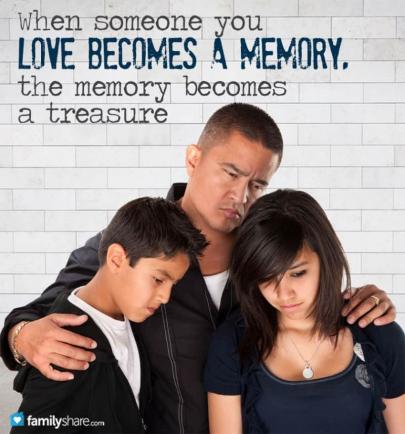
Coping with death is never easy. Even though adults understand the meaning of death, it is still difficult to accept. We begin to ask ourselves why the person had to pass on or we begin to wish the person was still with us. There are many ways we mourn the death of a loved one. Some of us distance ourselves from the world, while others appreciate the support of many. Some of us become mildly distracted, while some of us continue about our daily routines.
Just as adults, children struggle with death. Depending on their age, they may not understand why a loved one has passed away. For example, I was a young child when my father passed away, and I did not comprehend why he had to die. Chances are children are bound to ask various questions. Parents and family members may not know how to respond. You may come across children who lack emotion or concern, but it does not mean they are not suffering inside. Children should not keep the pain and confusion that comes with a death of a loved one bottled inside. Regardless of their demeanor, parents or family members should approach children with comfort and openness.
Below are five potential ways a family can cope with death together:
Grief
. Allow yourself and your family enough time to grieve by taking time off from work and school in order to process the situation. Do not rush back to your daily routine.
Family support
. You and your immediate family may have the necessary support to overcome the grief together. However, there may be other family members who are suffering just as much. Approach them and ask what you can do for them. Let them know that they are not alone and whatever they need you are available.
Seek help
. If by chance you find it hard to console each other or you find that your children are having a harsh time dealing with the death, it may be a good idea to seek a family grief counselor. As a family, you can console each other with the guidance and expertise of a professional.
Talk about the deceased
. Do not shy away from talking about the person who passed away. Keep memories alive by exchanging positive stories that the entire family can cherish. It's OK to celebrate the memory of the deceased. Ask your children to join in the conversation. Maybe they have a thing or two to express.
Maintain your health
. Even though the sorrow of losing a loved one weighs heavy on your heart, remember to keep up with your health. Eat healthy and allowing yourself enough hours to sleep. Maintain a close eye on your children's health as well. Assure yourself they are eating and resting appropriately.
Death is agonizing. Death is inevitable. It is essential that the family work together as a team, so there is enough time to grieve accordingly. Teach your children not to be afraid to ask questions or to cry whenever they need to. There is nothing wrong with showing emotions. Even though the deceased is not physically present, remember their memory will live forever in your hearts.

